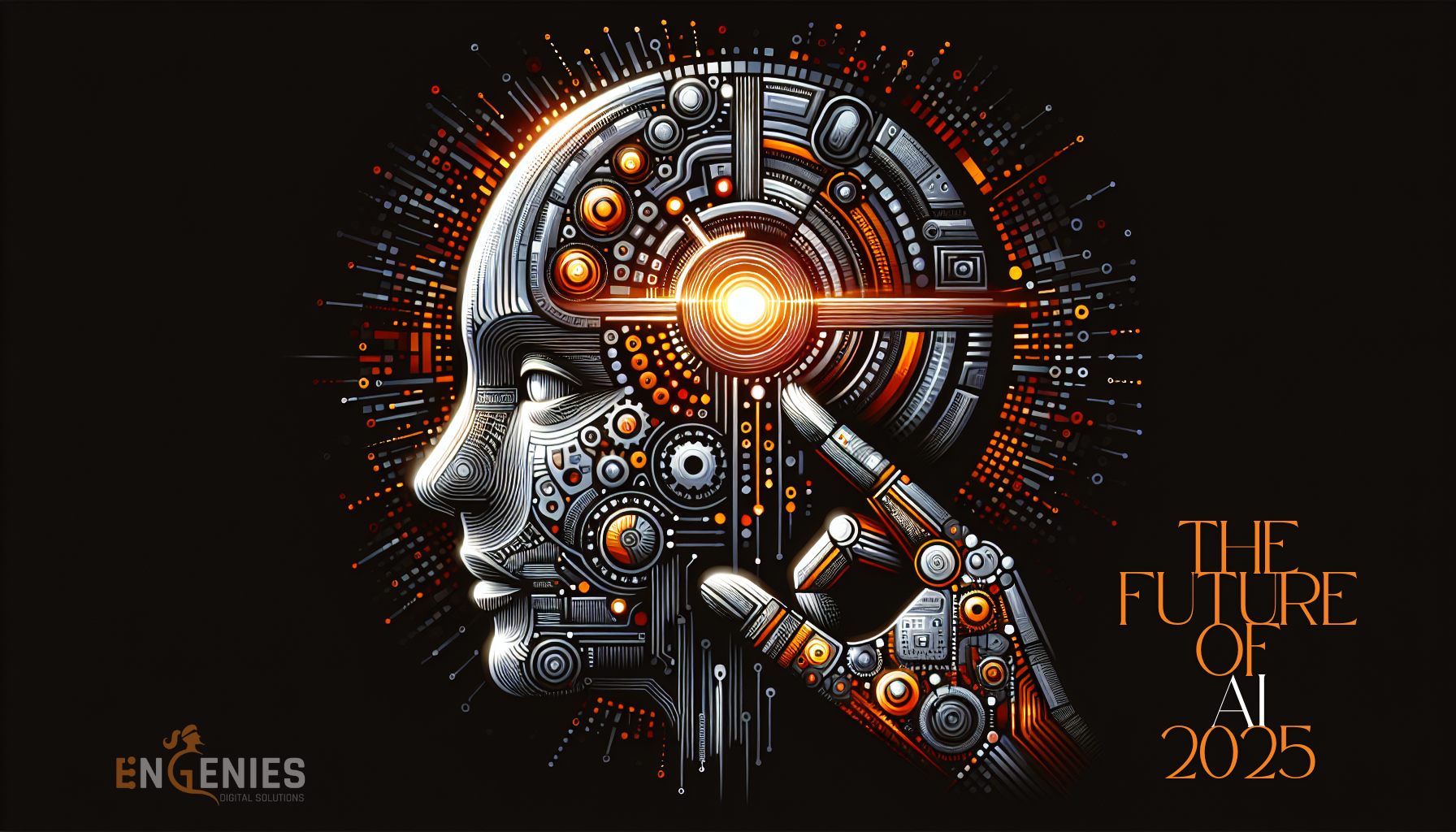
Artificial Intelligence (AI): The Future of Technology and the Future of Work. A Year Into 2025: AI Is the Future of Working, Interacting, and Decision Making But in all the hype, what does the future look like for AI? How will businesses measure impact, make sure it’s reliable, and overcome the data dependency hurdles? Here are some of the trends in AI that could shape 2025 and beyond.

AI’s ROI Challenge: More than The Numbers
So far, many of the AI projects have been experimental, with companies spending heavily on research, development and rapid prototyping. But 2025 represents a turn to real-world implementations, where AI needs to demonstrate its return on investment (ROI). The success of AI isn’t only measured in cost savings or headcount reductions – it’s measured in efficiency, innovation, and value.
In healthcare, for example, AI-based diagnoses are shortening the time needed to diagnose diseases such as cancer, with the potential to save lives. In finance, AI algorithms are helping to improve fraud detection, saving millions in potential losses. The real challenge lies in defining the impact of AI vibrantly, be it productivity gains, risk mitigation, or enriched customer experiences.
Companies should create strong frameworks for assessing the benefits of AI, balancing short-term monetary returns with a longer-range strategic edge. Learning from failures and iterating on AI use cases will be just as important as demonstrating short-term profitability.
AI Maturity: Transitioning from Puzzle to Enterprise Solutions
So think of AI as a teenager – growing fast but erratic. Today the demand for enterprise-grade AI solutions is greater than ever, coming from an early stage where AI was mostly used to do proof-of-concept deployments. There is a need for trustworthy, explainable and secure AI systems across organisations.
Enterprise AI needs to be more than just “smart.” It must be compliant with governance policies, auditable for decision-making, and resilient against biases and ethical concerns. Without these pillars, organisations may struggle to integrate AI into critical business operations.
A leading example of enterprise AI maturity is the automotive industry. Autonomous vehicles are no longer just a futuristic concept; they require AI that can make split-second decisions with accountability and transparency. Companies that succeed in building trust in AI-driven decision-making will lead the way in this new era of automation.

Data Dependency: AI’s Two-Edged Sword
The quality of the data that AI is trained on determines how well it performs. However, one of the largest obstacles for businesses aiming to grow AI solutions is still data management. Significant obstacles are presented by problems including data silos, inconsistencies, and security issues.
Think about e-commerce and retail platforms: recommendation algorithms driven by AI flourish on user data. However, the recommendations may lose their relevance or even become deceptive if the data is out-of-date, biased, or disjointed. To guarantee AI’s dependability, organizations must place a strong priority on high-quality, real-time data processing.
In 2025, real-time analytics, data governance frameworks, and AI-driven data purification will all be essential. AI’s full potential will be unlocked by businesses that use clean, organized, and compliant data while reducing the dangers of false information and security breaches.
The Rise of Autonomous AI Agents
The transition from reactive to proactive AI systems is one of the most fascinating advances in AI. Agentic AI, or autonomous systems with the ability to make decisions on their own, will revolutionize businesses by managing intricate operations with little assistance from humans.
AI-driven supply chain management solutions, for instance, may optimize inventories, reroute shipments, and anticipate interruptions in logistics without the need for human supervision. AI-powered virtual agents will manage increasingly complex customer support interactions, providing real-time solutions that go beyond prewritten answers.
But there are serious hazards associated with this change. Strict ethical and accountability guidelines must govern autonomous AI’s operations. Organizations run the danger of unforeseen outcomes that could erode credibility and confidence in the absence of clear governance. As AI agents assume greater responsibility, it will be critical to ensure openness, explainability, and human oversight.

Beyond 2025: The Evolution of AI
The advancements in AI don’t stop at automation or decision-making. Several emerging trends will shape the next decade, including:
AI has already transformed industries, so the question is not whether it will continue to do so. Making sure AI-driven change is moral, long-lasting, and consistent with human values is the true challenge. Leading companies in this new era will be those that adopt AI with a prudent and strategic strategy.
As 2025 approaches, artificial intelligence (AI) is more than simply a tool; it is a force that is revolutionizing creativity, efficiency, and judgment. Those that use AI with purpose, accountability, and an optimistic outlook will write the next chapter in its history.

Our specialty at Engenies is creating AI-powered agents that are suited for business requirements. Our specialty is developing scalable, adaptive, and intelligent AI solutions that work in unison with corporate processes. We assist businesses in increasing productivity, making better decisions, and lowering operational risks by utilizing sophisticated automation frameworks, real-time data processing, and machine learning models. In order to ensure that businesses can trust and responsibly expand AI solutions, our AI agents are built with explainability, compliance, and security at their core. Engenies enables businesses to confidently utilize AI’s full potential, whether that be by improving predictive analytics, streamlining supply chains, or automating customer interactions.

